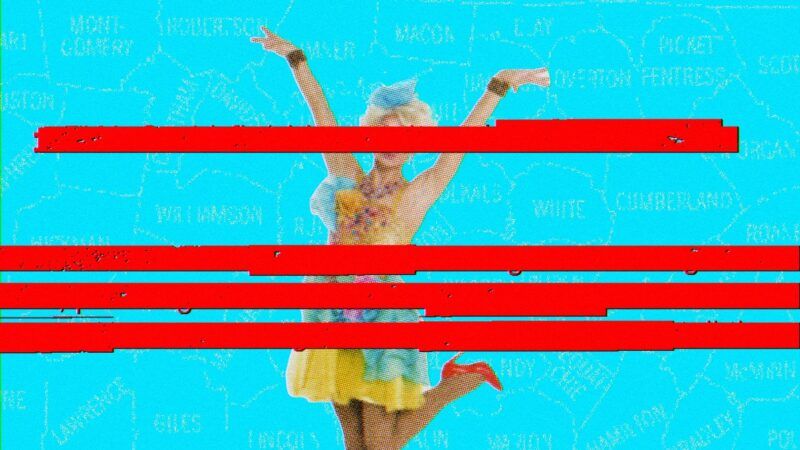Drag Is Protected Speech, Federal Judge Rules
It should be obvious that drag performances are protected by the First Amendment, but that hasn't kept government officials from trying to ban them.

Last month, a Utah town tried to block a local group from hosting a drag show in a public park. Last week, A federal judge ruled that the town's actions violated the First Amendment, arguing that in denying the group a permit, town officials have prohibited "plaintiffs from expressing protected speech on traditional public forums," causing "irreparable harm."
In March, Southern Utah Drag Stars, a Utah-based drag group, filed an application for a permit to host a drag show in a public park in St. George, Utah. According to legal documents, while the group was given verbal permission to begin advertising for its event, it was nonetheless denied a permit following a spate of complaints from residents who objected to the group's "family-friendly" drag performance.
This denial was discriminatory, according to Judge David Nuffer, the federal judge who granted a preliminary injunction against the town. City officials "denied the Permit based on never-previously-enforced ordinances that prohibit special event advertising until a final event permit is issued…. The City also enacted a moratorium barring all new special event permit applications for six months." All this to stop the drag show from going forward.
Nuffer ruled that these actions violated Drag Stars' First Amendment rights. "Public spaces are public spaces. Public spaces are not private spaces. Public spaces are not majority spaces. The First Amendment of the United States Constitution ensures that all citizens, popular or not, majority or minority, conventional or unconventional, have access to public spaces for public expression."
Nuffer also wrote that, contrary to the city's insistence, drag shows are clearly protected speech. "There is no question that governments have a legitimate interest in protecting children from genuine obscenity. But the City has not provided a shred of evidence that would implicate that legitimate interest. Moreover, that legitimate interest 'does not include a free-floating power to restrict the ideas to which children may be exposed. Speech that is neither obscene as to youths nor subject to some other legitimate proscription cannot be suppressed solely to protect the young from ideas or images that a legislative body thinks unsuitable for them.'"
Attempts at banning drag shows have become increasingly popular across the country, often with public officials citing the apparent "obscenity" of the performances, especially those that allow children to attend. However, this latest injunction shows yet again that drag performances are protected speech and that local governments, public colleges, and other state actors have no legal basis for attempting to restrict them.


Show Comments (296)